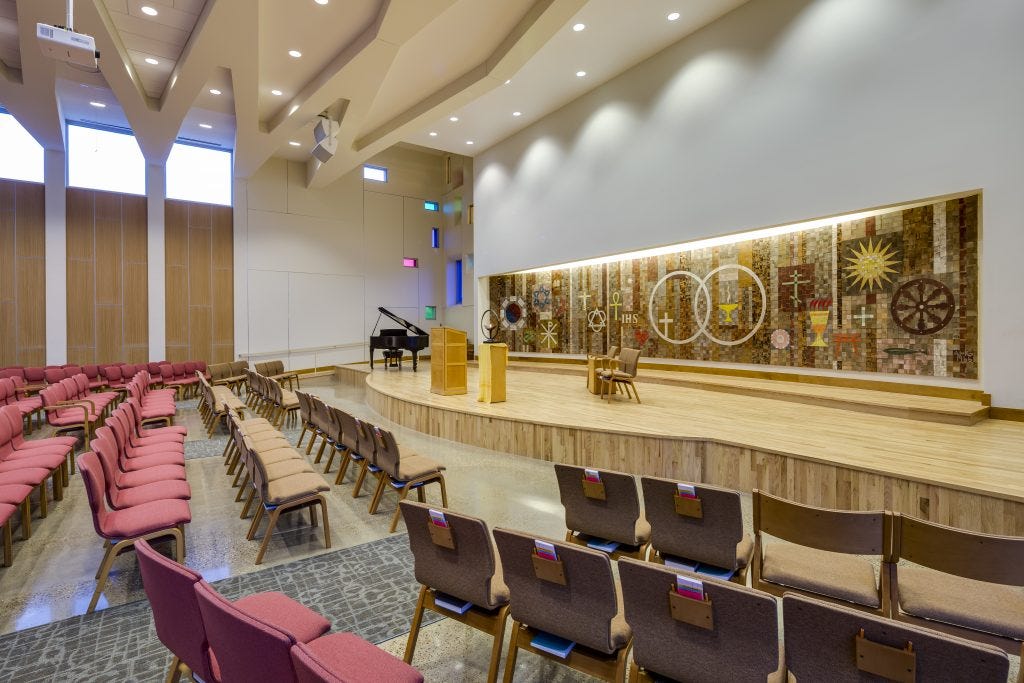The last time I attended the Association of UU Music Ministries (AUUMM) annual conference was 2006 and it was still the UU Musicians Network; I admit was a tad curious how it would go, since I was going for the first time not as a choir director but as a minister.
I remember the first time I walked into a UUMN conference; I was warmly greeted, welcomed with a spirit of connection and belonging. Before long, I realized that this is where the heartbeat of our faith was. Here, people were thinking deeply about music’s affects on our spirits, how excellence in song leading and attention to song choosing builds and sustains our faith, how important both resource sharing and authentic collaboration are to our work and our souls.
Guess what.
All of that is still true. Maybe even more so, because in the ensuing 18 years, AUUMM has taken seriously questions of cultural appropriation, anti-racism and anti-oppression, accessibility, and covenant. AUUMM members continue to write incredible songs for our congregations and our choirs. They are encouraging musicianship not just amongst themselves but within and beyond the congregations they serve. They continue to be the people who help us form our theologies and strengthen our faith at the most basic level - through music.

This year’s conference - hosted by our congregation in Albuquerque - reminded me that the heartbeat of our faith is still here, amongst the musicians. I was again welcomed warmly, felt a spirit of connection, and - probably thanks to the work I’ve done with so many musicians in their congregations, at our Association-wide gatherings, and more generally through my writing and classes I’ve taught - felt like I belonged, like there was a me-shaped space. I got to sing, lead worship, teach a few more people how hymns work, emcee a talent night, and generally be present for my music family. I met a bunch of incredibly talented music directors, singers, and instrumentalists, and reconnected with many others.
I tell you all of this because in the connections and conversations was a thread of frustration.
That thread was made up of lay leaders who cut music budgets and music jobs, of ministers who don’t collaborate with their music professionals, and of the continued pushback they receive for nearly every piece they select because someone doesn’t like it, or because the performer wasn’t professional enough, or the performers are only professionals, or there is no children’s choir (usually in places where there are few children) or or or….
Yeah.
If the heartbeat of our faith is in our music, why are we working so hard to stop the music from happening?
Most of our congregations hire music professionals: whether they are working musicians are have taken other kinds of work, we rarely get untrained people to do music in our congregations. These people have masters and doctorates in composition, conducting, performing. Many don’t come in as Unitarian Universalists, but many of them understand us and maybe even become members of our faith. They take the time to learn who we are and what our theology is (I know, because I teach it) and to understand how to help us sing our theology and deepen our spirits.
Why don’t we take more advantage of their gifts when planning worship or other events? Why don’t we pay them for their knowledge and ministry? Why do we pretend we’re not doing the same thing our schools do and make the first cuts in the arts? Why do we think music professionals only need to work a couple hours for choir rehearsal and a few hours on Sunday morning, and thus only fund these positions at 10 hours a week, and then expect bountiful and perfect output?
Our music professionals have so much to offer - they build communities through choirs and ensembles. They bring creativity to the planning process. They bring important building blocks for our faith into our sanctuaries every week. They bring the spirit and soul and love and joy.
How about we respect them, listen to them, collaborate with them, and for god’s sake fund them?1
And by fund, I mean not just salaries, but professional development expenses, tunings, instrument purchases, sheet music purchases, etc.




